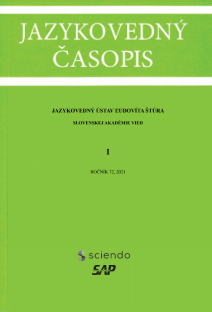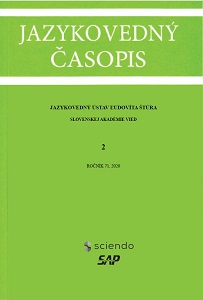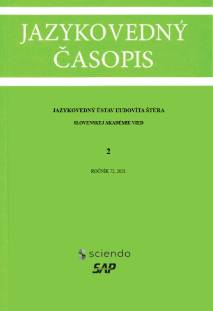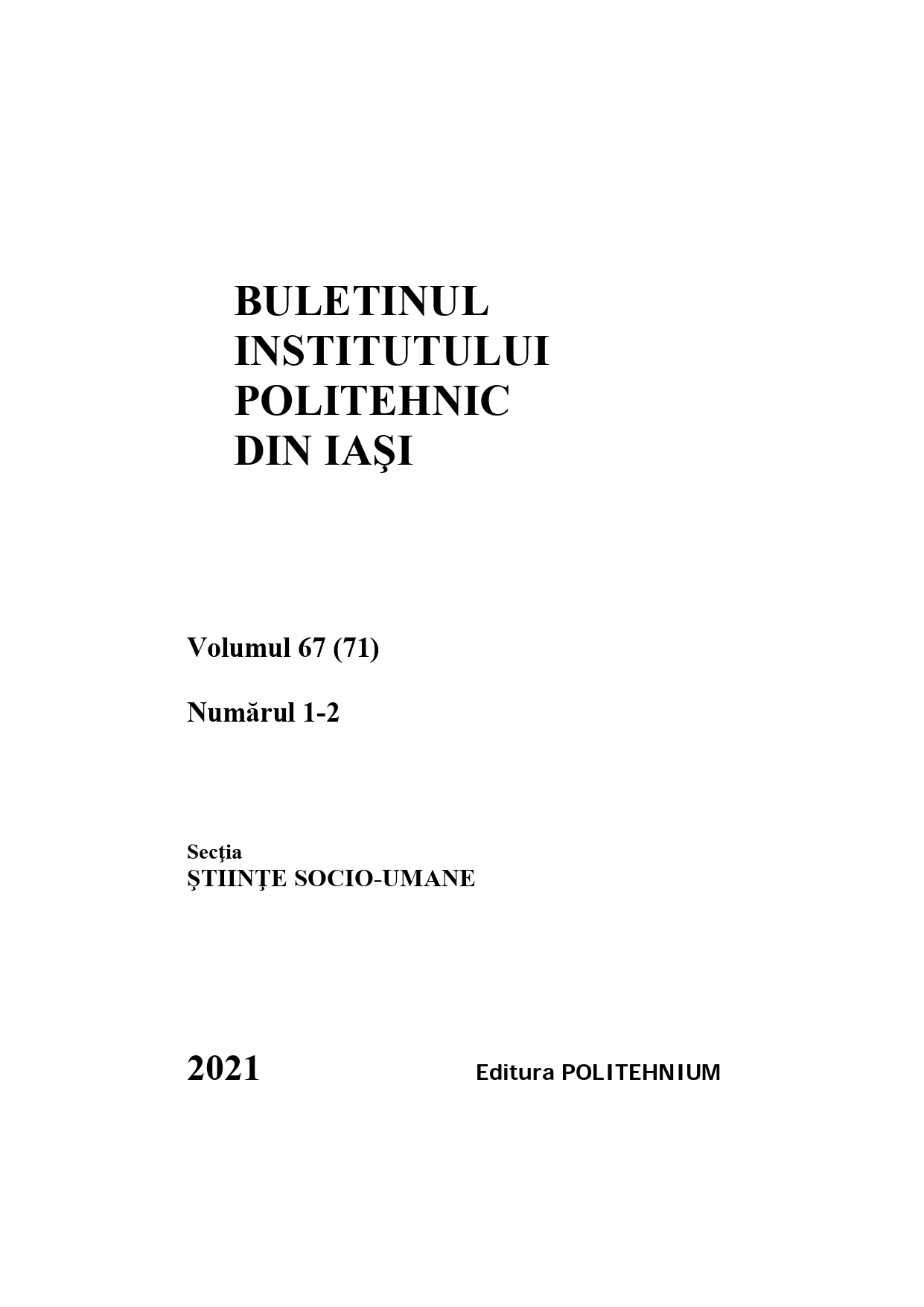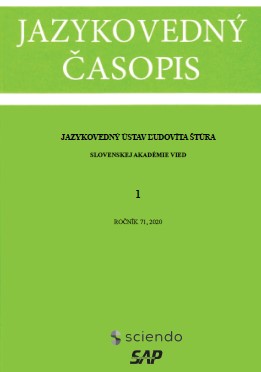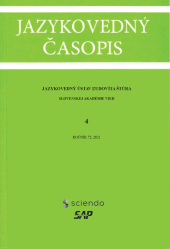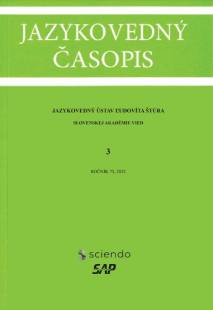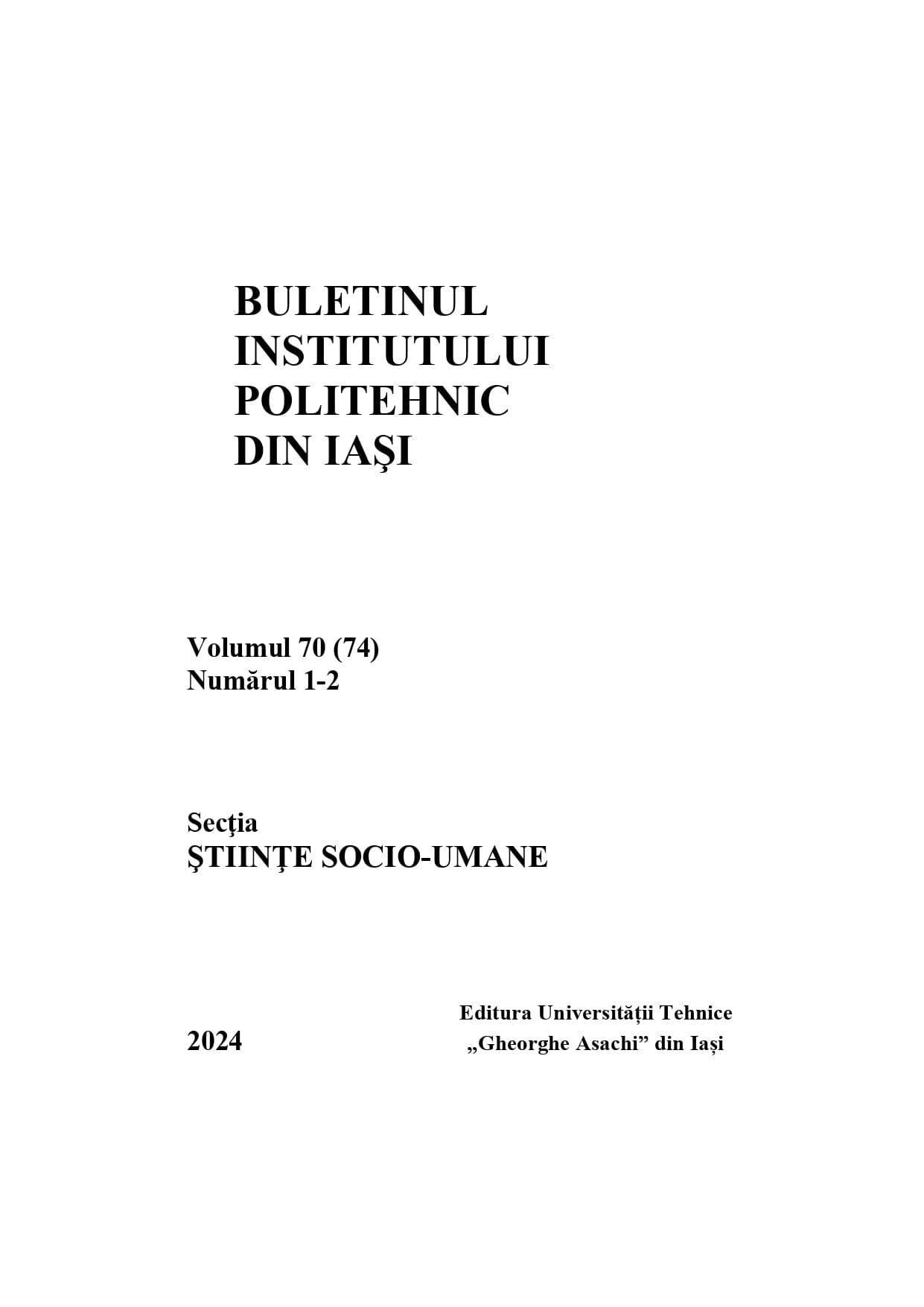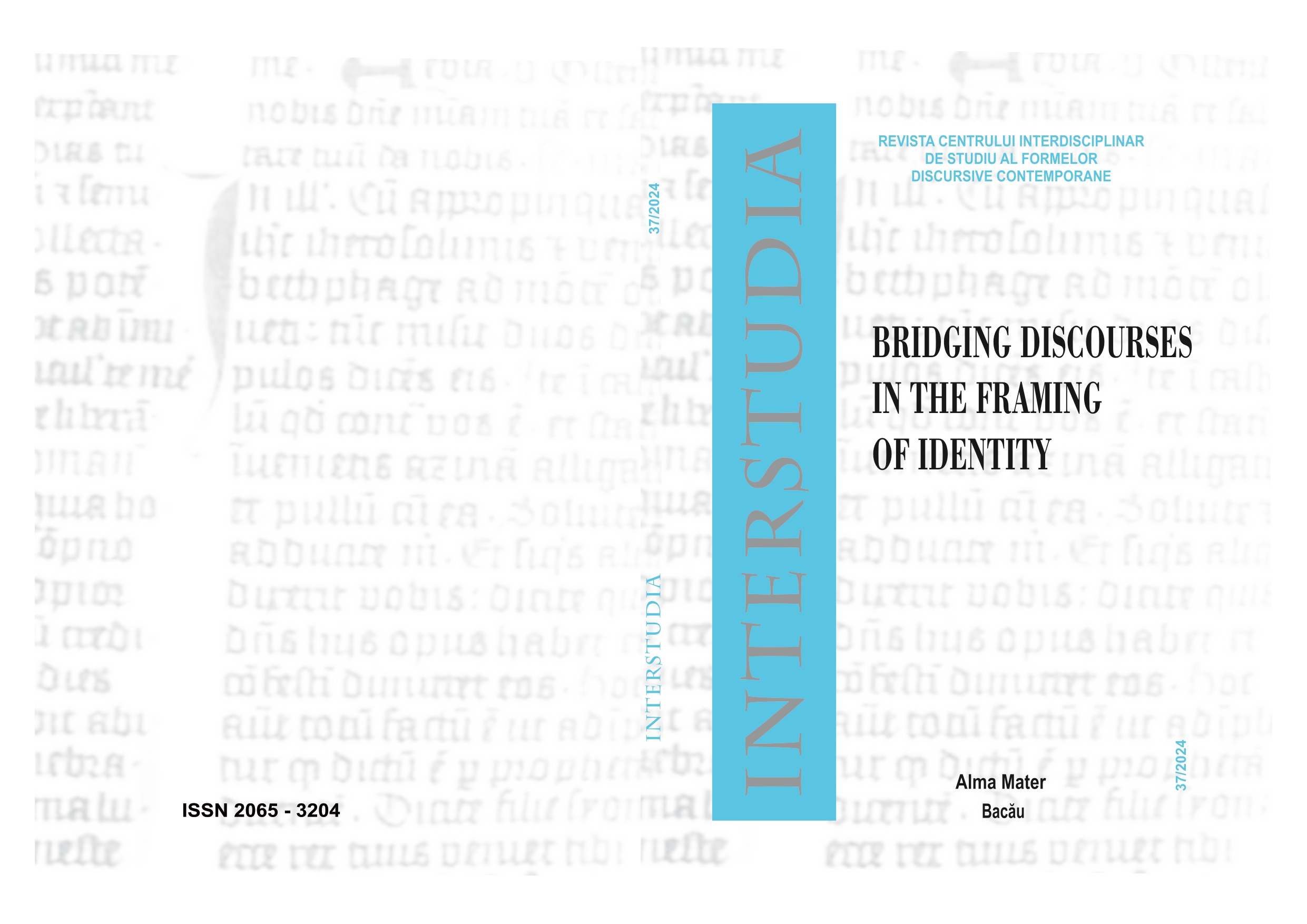
Prečo má slovenčina tri nárečia: prípadová štúdia z historickej perceptuálnej dialektológie
Dialect taxonomies emerge from a political context, and change in response to political events. This article, a case study in "Historical Perceptual Dialectology," tracks the history of Slovak dialect taxonomies. In the early nineteenth century, outside observers saw the Slovaks as partly Polish, and Partly Czech, while Slovak savants classified themselves either with open-ended lists based on prominent towns, or into dual ethnonymic categories such as "Germano-Slavic" or "Polno-Slavic." The modern tripartite subdivisions of East Slovak, Central Slovak, and Western Slovak do not reflect linguistic reality, but instead emerged from Ludovit Stur's attempt to codify a literary Slovak, specifically his desire to overcome confessional divisions between Catholics and Protestants.
More...
